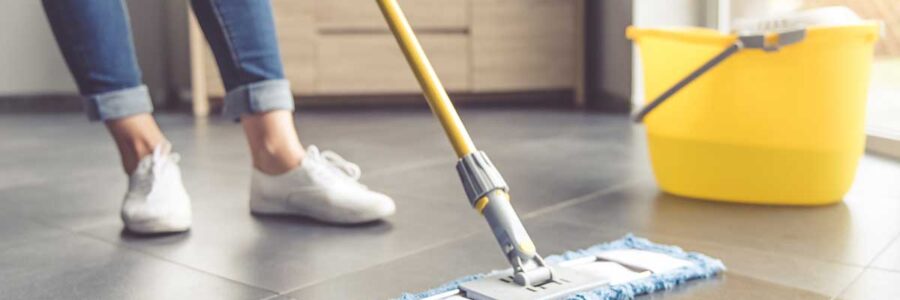Cleaning your home is a routine task that most of us undertake with little thought. Products like Swiffers and similar mops have become household staples, promising a quick and convenient way to keep floors and surfaces spotless. But have you ever considered the potential downsides of these products? While they may seem an efficient choice, they could introduce harmful materials and chemicals into your home environment.
The Problem with Plastic-Based Cleaning Products
Swiffers and similar mopping systems are largely made from plastic, which, while convenient, comes with several environmental and health concerns. The disposable pads and dusters designed for these tools contribute to the growing issue of plastic pollution. As these plastic products are used, they can release microplastics—tiny plastic particles—into your home.
Microplastics are a significant environmental concern because they don’t break down naturally and can remain in ecosystems for centuries. These particles can accumulate in the air and dust inside your home, potentially being inhaled or ingested by you and your family. The impact of microplastics on human health is still being researched, but early studies suggest they could pose risks, particularly with long-term exposure.[1]
The Dangers of Chemical Cleaners
Another concern with Swiffers and similar products is the use of chemical cleaners. These products often contain synthetic fragrances, disinfectants, and other chemicals that can negatively affect indoor air quality. Many of these substances include volatile organic compounds (VOCs), which are known to cause respiratory irritation, headaches, and other health problems.[2]
Phthalates, commonly found in synthetic fragrances, are another group of chemicals to watch out for. These chemicals are known to disrupt hormone function, which can lead to a variety of health issues. The presence of these chemicals in everyday cleaning products is particularly concerning for families with children or pets.[3]
Using these cleaning products can result in these harmful substances lingering on your floors and surfaces long after you’ve finished cleaning, leading to ongoing exposure for you and your loved ones.
Natural Cleaning Solutions: A Safer Alternative to Swiffers
Fortunately, safer, more sustainable alternatives to plastic-based cleaning tools and chemical-laden cleaners exist. You can keep your home clean without exposing yourself to harmful substances by making a few simple changes.
- Reusable Cloths and Mops: Switching to reusable microfiber or cotton cloths can significantly reduce your reliance on disposable cleaning products. These clothes can be washed and reused, helping to minimize plastic waste and prevent the release of microplastics. When it comes to mopping, opt for a mop with a washable head that can be cleaned and reused.
- Vinegar and Water for Cleaning: A water and white vinegar solution is a simple, effective natural cleaner that can handle most household messes. Vinegar has natural antibacterial properties and leaves no harmful residues behind. Add a few drops of essential oil to the mixture for a pleasant scent.
- Baking Soda for Tough Stains: Baking soda is an excellent natural option for tougher cleaning tasks. It’s mildly abrasive and great for scrubbing dirt and grime without harsh chemicals. Baking soda is particularly effective on surfaces like kitchen countertops and bathroom tiles.
- Castile Soap for All-Purpose Cleaning: Castile soap, made from natural oils, is a gentle yet effective cleaner for a variety of surfaces. Dilute it with water to create a versatile cleaning solution that is safe for your home and the environment.
Benefits of Natural Cleaning Alternatives
Switching to natural cleaning alternatives offers several benefits that go beyond just a clean home:
- Improved Air Quality: Eliminating chemical cleaners can significantly improve the indoor air quality in your home, creating a healthier living environment.
- Cost Savings: Natural cleaning ingredients like vinegar and baking soda are cost-effective and can be found in most households, saving you money on expensive commercial cleaners.
- Environmental Impact: Reusable cloths and natural cleaning solutions generate less waste and reduce your ecological footprint, helping to protect the planet.
- Safety: Natural cleaners are generally safer for use around children and pets, reducing the risk of exposure to harmful chemicals.
Conclusion: Choose Healthier Cleaning Habits
While Swiffers and similar products may offer convenience, the potential health and environmental risks they pose should give you pause. By switching to natural cleaning alternatives, you can maintain a clean, healthy home without the hidden dangers of plastic-based tools and chemical cleaners. Make the switch today for a safer, more sustainable way to clean your living space.
References:
- Lin, Qianhui, et al. “Occurrence of Microplastics in Three Types of Household Cleaning Products and Their Estimated Emissions into the Aquatic Environment.” The Science of the Total Environment, vol. 902, Dec. 2023, p. 165903. PubMed.
- David, Elena, and Violeta-Carolina Niculescu. “Volatile Organic Compounds (VOCs) as Environmental Pollutants: Occurrence and Mitigation Using Nanomaterials.” International Journal of Environmental Research and Public Health, vol. 18, no. 24, Dec. 2021, p. 13147. PubMed Central.
- Zlatnik, Marya G. “Endocrine-Disrupting Chemicals & Reproductive Health.” Journal of Midwifery & Women’s Health, vol. 61, no. 4, July 2016, pp. 442–55. PubMed Central.


